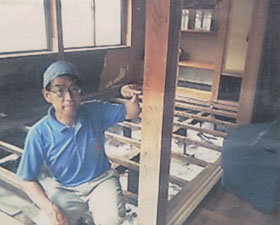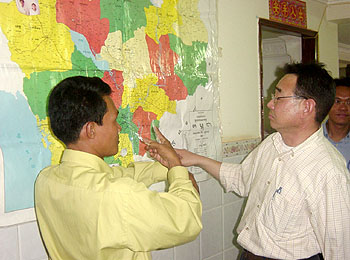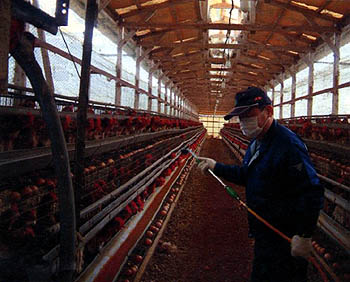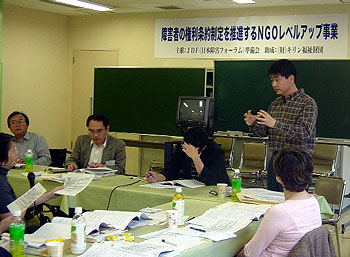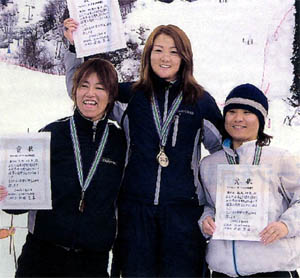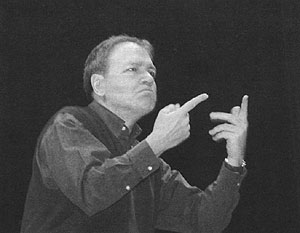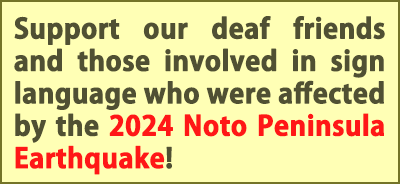from September 2004 Issue of Japanese Deaf News, JFD’s monthly newspaper:
International Seminar on the Convention Held in Kyoto
The United Nations is currently undertaking the process of elaborating a comprehensive and integral international convention to promote and protect the rights and dignity of persons with disabilities. On August 9th, an international seminar on this convention was held in Kyoto. This was the first such seminar on the convention to be held in the western part of Japan. Updates on movements related to the convention were reported, and the participants reconfirmed the significance of an international convention on the rights of persons with disabilities.
JFD President Ando Participates as a Panelist
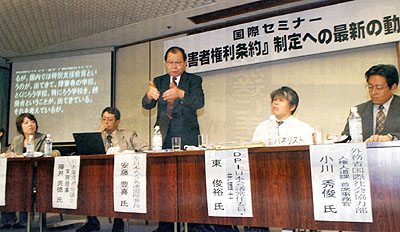
The International Seminar on Recent Movements Toward the “Convention on the Rights of Persons with Disabilities” was held on August 9th at the National Center of Sign Language Education in Kyoto City, hosted by the Japanese Society for Rehabilitation of Persons With Disabilities (JSRDP), with cooperation from the Japan Disability Forum (JDF) Preparation Committee. Discussions at this Seminar were focused on such issues as the definition of “disability”, and the understanding of “reasonable accommodations” by which persons with disabilities can achieve equality.
Representatives of the Japan Disability Forum (JDF) Preparation Committee confirmed the need for action based on sound principles in order to attain a convention of high quality in as short a time as possible. To achieve this purpose, it was agreed the Japan Disability Forum, which is still in its preparatory stage, would be formally established in autumn. JDF will aim to develop its advocacy movements and endeavor to win nationwide support toward the convention.
